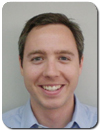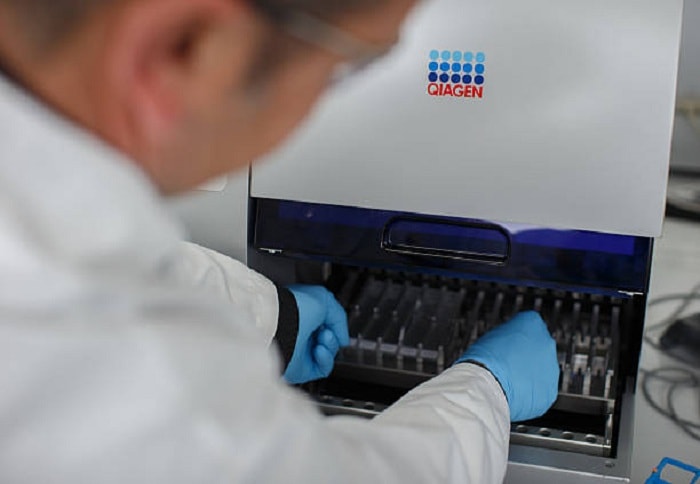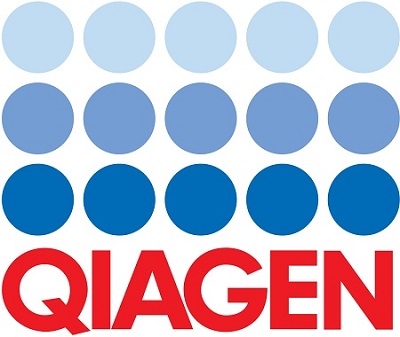
The Healthcare industry is one of the largest industries catering to the medical needs of innumerable people around the globe. Consuming over 10 percent of the gross domestic product of most developed nations, healthcare is an enormous part of a country’s economy. Asia’s population will expand from 3.2 billion in 2002 to 5.6 billion (60% of world population) in 2050. In view of that, one would expect a change in the global healthcare market landscape. The healthcare spending in Asia may eventually surpass that of the US and Europe. There will be a big jump in the demand for quality, affordable healthcare especially with the ageing population and increasing number of middle class households in Asia.
The ultimate goal is to deliver the best care possible to the patients. The sharing of relevant patient information such as medical records, diagnoses, and health plans is crucial for quality medical care. In addition, providers need to reduce operations cost and eliminate inefficiencies in internal administrative systems. The solution is an IT infrastructure that would integrate existing disparate sources of information; connect different branches and offices; and provide easy, consistent access via intranet, extranet, or internet.
Demographic, social and cultural changes are putting more pressure than ever before on healthcare providers to be accessible, affordable, and responsive. As a result, healthcare organizations rely on technology more than ever to help achieve their business and clinical objectives
Innovative solutions and technologies offer new ways to address these challenges. Companies with an experienced, worldwide team of medical and life sciences professionals, help healthcare professionals enhance productivity, increase mobility, and improve collaboration – leaving more time for patient care. With the latest technological developments, the world health care industry is catching up with the other leading industries of the world. Hospitals, clinics and managed health care organizations need to offset the burden of fixed premiums and growing costs with operational efficiencies that save money and help boost profits. A key area for improvement is the management of workforce resources. Healthcare providers need to shift administrative tasks away from medical professionals and towards automated healthcare customer service systems or lower wage workers. Providers that strategically leverage technologies such as intelligent call routing, voice self-service and outbound dialing systems will realize significant cost savings.
Companies and agencies can leverage their entire organization, from the contact center to the back office, to improve the overall customer experience. Customer support networks provide comprehensive solutions-oriented service to customers at any time in any place in the world.
The need to expand in this direction is not only felt by the healthcare industry but also by the industries that serve it. Therefore biotechnology, companies like QIAGEN are not wasting a single minute in taking such actions. Infact, QIAGEN has recently opened a new Service Solutions Center in Singapore, bringing the company’s number of service centers throughout the world to seven.
Singapore is already a popular hub in the Asia-Pacific region for biopharma firms and contract research organizations (CROs) to conduct their regional clinical development activities. Over the last six years the country has been investing heavily in its biomedical sciences industry in order to broaden its appeal, build up infrastructure, establish cutting edge technologies and develop manpower.
About QIAGEN’s new service solutions center in Singapore
On February 22, 2008 QIAGEN opened a new Service Solutions Center in Singapore for the Asia-Pacific region. The ceremony was presided over by Peer M. Schatz, the CEO of QIAGEN, as well as various other company executives, governmental officials, and guests of honor. The opening was a great success and showcased the overwhelming support for QIAGEN and the new Center in the region. “We are very pleased that QIAGEN has chosen Singapore as the site for its new Service Solutions Center,” said Ms Aw Kah Peng, Assistant Managing Director of the Singapore Economic Development Board. “It shows once again that Singapore is an excellent business location for leading international life sciences and diagnostic companies.”
The facility completes the company’s global Service Solution Network by adding a center in the Asia-Pacific region to the Company’s existing centers in the United States (Valencia, CA and Germantown, MD), Europe (Hilden, Crawley, Paris) and Japan (Tokyo).
What will it provide?
With the addition of the Singapore center, QIAGEN’s global customer support network will be able to provide comprehensive solutions-oriented service to customers at any time, in any place in the world.
Need for the center?
The new center will further increase the company’s responsiveness to the information and service requirements of customers in research, applied testing, pharmaceuticals and molecular diagnostics. Customers in the Asian-Pacific region, including Australia, will be able to access QIAGEN services faster, more conveniently and more efficiently.
How it will help to QIAGEN and the customers?
The facility will serve as a base for QIAGEN employees who will handle customer care and technical service requests, mainly in the form of telephone calls and emails. To ensure that all customer inquiries can be efficiently and effectively dealt with, QIAGEN’s employees will be able to respond in all major regional languages including Korean, Mandarin, Cantonese, Malay and English.
The Singapore Service Solutions Center currently handles and average of 600 requests a month, with phone calls making up the gross majority of that figure. Over half of the requests originate in Shanghai, China with Australia and Hong Kong rounding out the top three.
The opening of the Center brings QIAGEN a step closer to its goal to not just provide products, but also provide entire service solutions. As such, QIAGEN strives to not only set standards in the development of innovative sample and assay technologies, but also in delivering outstanding customer service. With this investment the company can better respond to the needs of each and every customer, extending services to 24 hours a day, 7 days a week. It also moves QIAGEN even closer to its customers in all market segments and helps extend the company’s global reach and enhance the service level in QIAGEN’s fastest growing region.
The new Center complements QIAGEN’s other major initiatives in Singapore. In December 2007, QIAGEN opened DX Assay, a joint venture with BioCapital1. DX Assay develops molecular diagnostic tests which impact how diseases are detected and treated. In January 2008, QIAGEN announced that it had been awarded an exclusive contract by the Singapore Ministry of Health to supply sample preparation solutions and molecular test kits for the specific detection of Influenza H5N1 viruses – better known as avian flu.



















